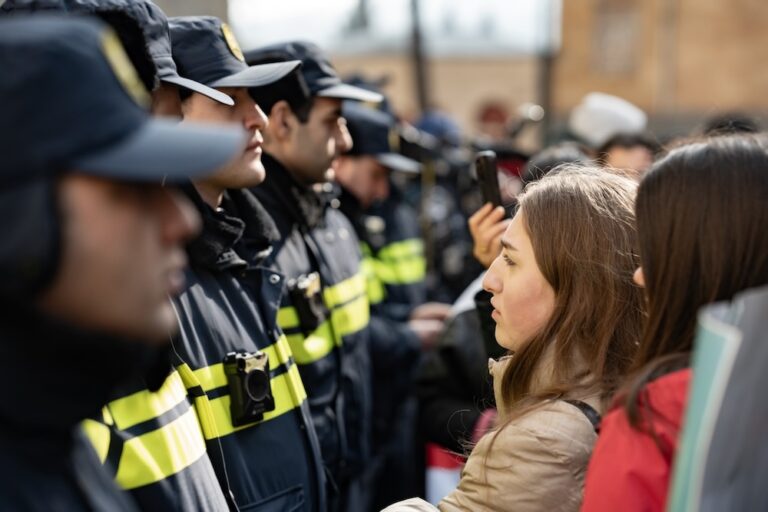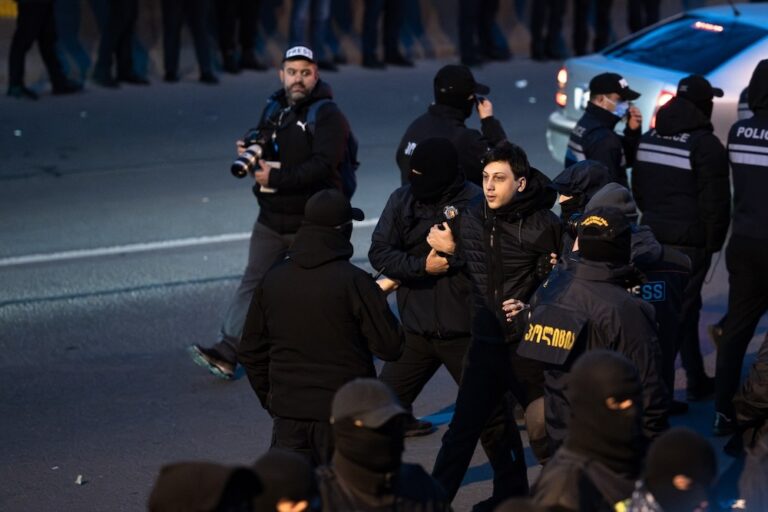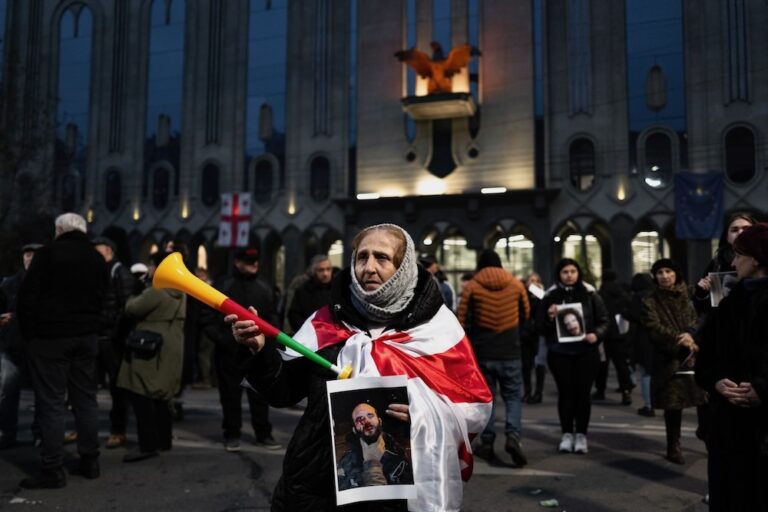(HRW/IFEX) – The following is a 6 September 2000 Human Rights Watch press release: Georgia Lets Attacks on Religious Believers Go Unpunished (New York, September 6, 2000) Georgian authorities must stop the cycle of impunity for violence against religious minorities, Human Rights Watch said today. In a letter sent to Georgian President Eduard Shevardnadze, the […]
(HRW/IFEX) – The following is a 6 September 2000 Human Rights Watch press release:
Georgia Lets Attacks on Religious Believers Go Unpunished
(New York, September 6, 2000) Georgian authorities must stop the cycle of impunity for violence against religious minorities, Human Rights Watch said today. In a letter sent to Georgian President Eduard Shevardnadze, the organization condemned the government for its failure over the past several months to bring to justice the perpetrators of an escalating series of violent attacks against adherents to nontraditional religious faiths.
Regrettably, the U.S. government did not strongly condemn Georgia for failing to bring those responsible for these attacks to justice in the State Department’s Annual Report on International Religious Freedom, released yesterday.
Instead, the U.S. government downplayed the seriousness of the violent attacks by labeling them “harassment,” and implying that bringing those responsible to justice was beyond the control of central authorities because “local” police and officials were either responsible for them or had failed to intervene to halt them. But the Georgian central government not only failed to bring the perpetrators of these violent attacks to justice, in several instances officials actually charged the victims with crimes.
On August 17, about forty members of a nationalist group assaulted human rights defenders and a journalist as they left a trial they were monitoring at Guldani District Court, in a suburb of the capital, Tbilisi. On August 23 a police investigator at Nadzaldevi District Police Station told one of the victims of the August 17 attack that he would likely be charged with hooliganism, a criminal offense in Georgia. The victim, Giga Bokeria, works for the Liberty Institute, a Georgian nongovernmental organization dedicated to defending freedom of expression.
Bokeria told Human Rights Watch that he believes that there is a serious threat of further violence against members of religious minorities in Georgia, and that the government is using the attacks to distract public attention from its poor record on social issues.
“This situation is becoming very serious. It’s not just about us being beaten,” said Bokeria, “The government has failed to fulfill it social obligations, and there is a lot of unrest.”
The Georgian government has frequently lagged months in the payment of wages and pensions, and, according to multilateral lending institutions, has failed to collect taxes. In April, the International Monetary Fund (IMF) said that problems of governance and corruption have undermined fiscal stability in Georgia, and in May, it found that poverty in Georgia increased significantly throughout 1998 and the first half 1999.
The text of the letter can be found at: http://www.hrw.org/press/2000/09/georgia0906.htm#letter


